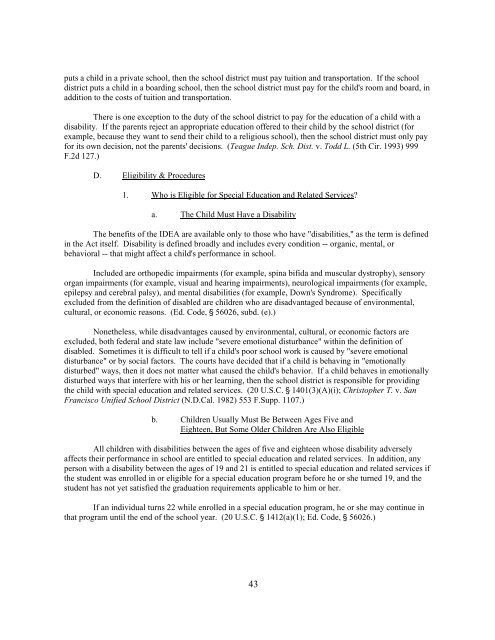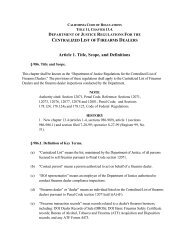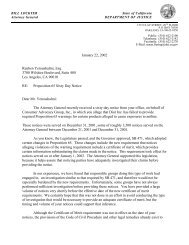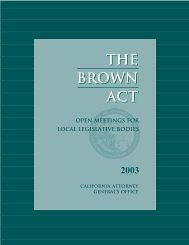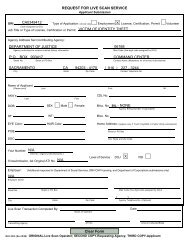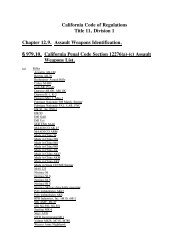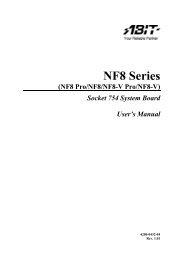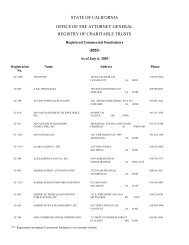Legal Rights of Persons With Disabilities - Ossh.com
Legal Rights of Persons With Disabilities - Ossh.com
Legal Rights of Persons With Disabilities - Ossh.com
Create successful ePaper yourself
Turn your PDF publications into a flip-book with our unique Google optimized e-Paper software.
puts a child in a private school, then the school district must pay tuition and transportation. If the school<br />
district puts a child in a boarding school, then the school district must pay for the child's room and board, in<br />
addition to the costs <strong>of</strong> tuition and transportation.<br />
There is one exception to the duty <strong>of</strong> the school district to pay for the education <strong>of</strong> a child with a<br />
disability. If the parents reject an appropriate education <strong>of</strong>fered to their child by the school district (for<br />
example, because they want to send their child to a religious school), then the school district must only pay<br />
for its own decision, not the parents' decisions. (Teague Indep. Sch. Dist. v. Todd L. (5th Cir. 1993) 999<br />
F.2d 127.)<br />
D. Eligibility & Procedures<br />
1. Who is Eligible for Special Education and Related Services<br />
a. The Child Must Have a Disability<br />
The benefits <strong>of</strong> the IDEA are available only to those who have "disabilities," as the term is defined<br />
in the Act itself. Disability is defined broadly and includes every condition -- organic, mental, or<br />
behavioral -- that might affect a child's performance in school.<br />
Included are orthopedic impairments (for example, spina bifida and muscular dystrophy), sensory<br />
organ impairments (for example, visual and hearing impairments), neurological impairments (for example,<br />
epilepsy and cerebral palsy), and mental disabilities (for example, Down's Syndrome). Specifically<br />
excluded from the definition <strong>of</strong> disabled are children who are disadvantaged because <strong>of</strong> environmental,<br />
cultural, or economic reasons. (Ed. Code, ' 56026, subd. (e).)<br />
Nonetheless, while disadvantages caused by environmental, cultural, or economic factors are<br />
excluded, both federal and state law include "severe emotional disturbance" within the definition <strong>of</strong><br />
disabled. Sometimes it is difficult to tell if a child's poor school work is caused by "severe emotional<br />
disturbance" or by social factors. The courts have decided that if a child is behaving in "emotionally<br />
disturbed" ways, then it does not matter what caused the child's behavior. If a child behaves in emotionally<br />
disturbed ways that interfere with his or her learning, then the school district is responsible for providing<br />
the child with special education and related services. (20 U.S.C. ' 1401(3)(A)(i); Christopher T. v. San<br />
Francisco Unified School District (N.D.Cal. 1982) 553 F.Supp. 1107.)<br />
b. Children Usually Must Be Between Ages Five and<br />
Eighteen, But Some Older Children Are Also Eligible<br />
All children with disabilities between the ages <strong>of</strong> five and eighteen whose disability adversely<br />
affects their performance in school are entitled to special education and related services. In addition, any<br />
person with a disability between the ages <strong>of</strong> 19 and 21 is entitled to special education and related services if<br />
the student was enrolled in or eligible for a special education program before he or she turned 19, and the<br />
student has not yet satisfied the graduation requirements applicable to him or her.<br />
If an individual turns 22 while enrolled in a special education program, he or she may continue in<br />
that program until the end <strong>of</strong> the school year. (20 U.S.C. ' 1412(a)(1); Ed. Code, ' 56026.)<br />
43


